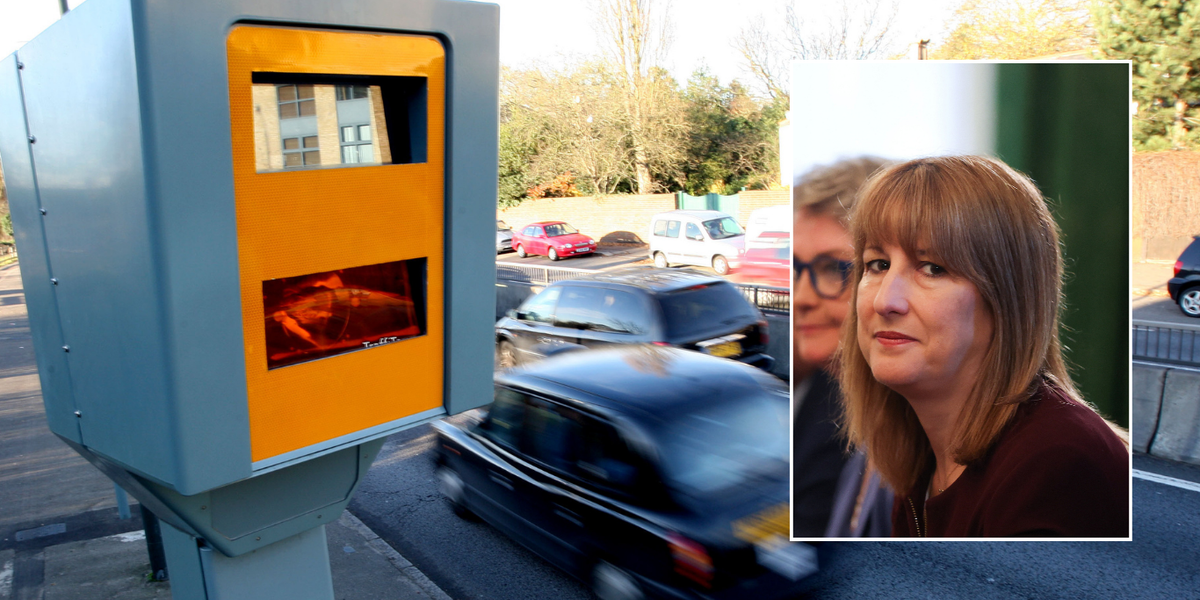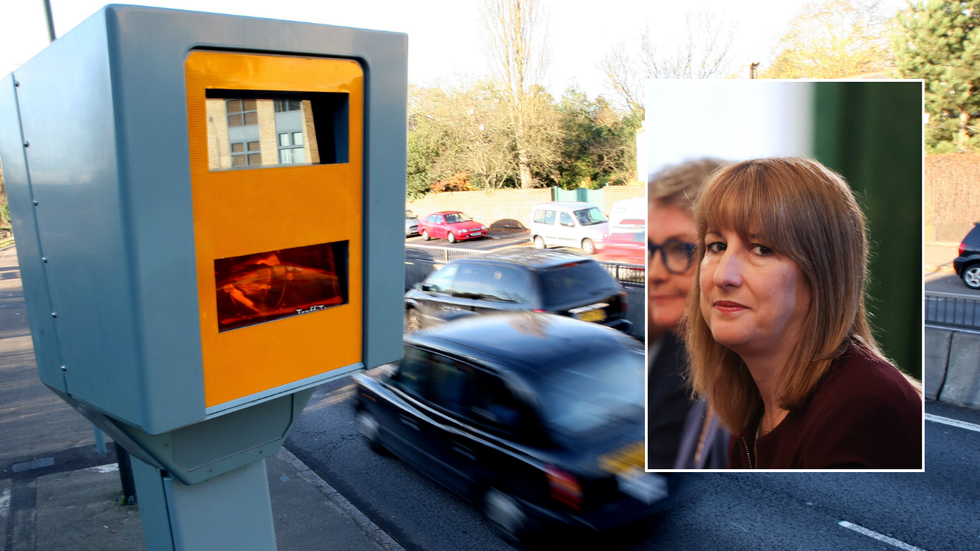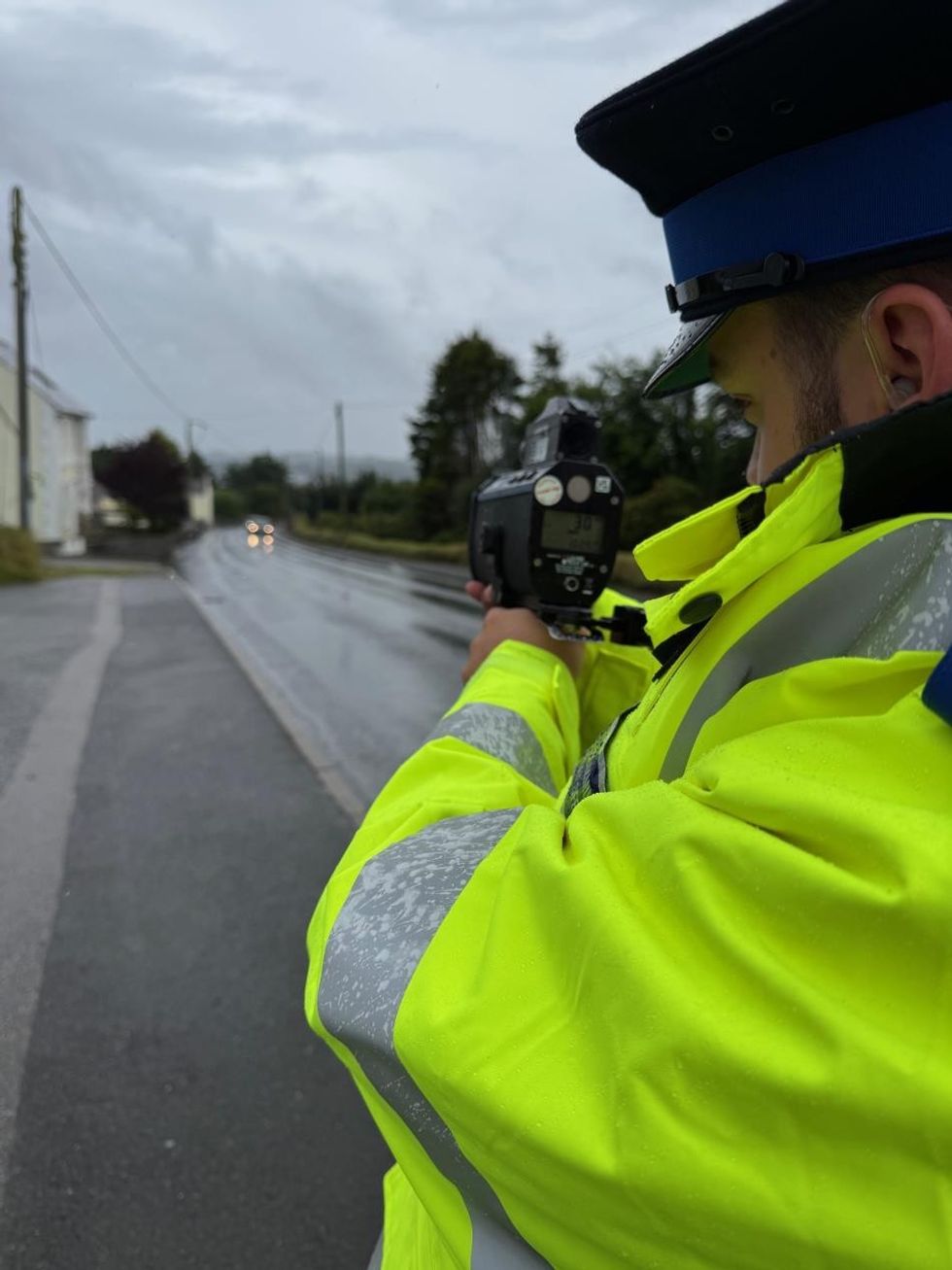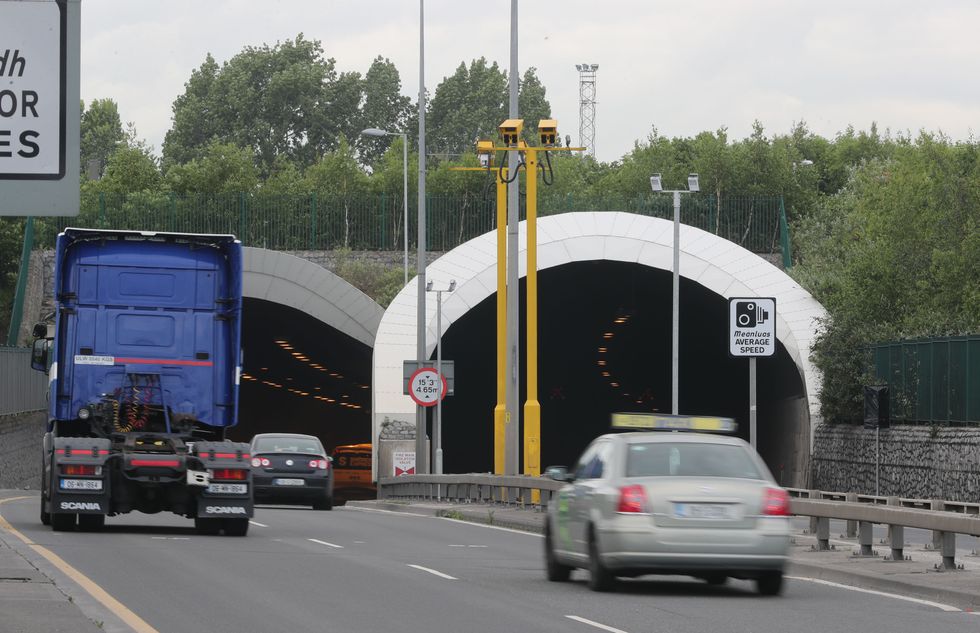


Demands grow for Rachel Reeves to make changes to speeding fines despite drivers 'bearing the costs'

Rachel Reeves has been urged to redirect millions collected from speeding penalties away from the Treasury and into local road safety initiatives.
It comes after a coalition of senior officials submitted a formal request to ministers, arguing that the existing system leaves enforcement programmes underfunded.
The Treasury currently absorbs all revenue generated by speed cameras, which is roughly £100million for general public expenditure, while local authorities have been forced to fund the maintenance and operation of enforcement equipment through their own budgets.
The signatories have now warned that those who break speed limits should finance the enforcement infrastructure, rather than placing the burden on law-abiding citizens through local taxes.
The coalition included five chief constables and mayors representing major metropolitan areas across England, all of which have called on the Chancellor to introduce new measures.
The campaign centred on establishing a system where drivers breaking traffic laws finance the infrastructure needed to catch them, rather than law-abiding citizens shouldering these expenses through local taxes.
Simon Foster, Labour's West Midlands police and crime commissioner, spearheaded the initiative alongside Richard Parker, the region's mayor, securing support from prominent figures across law enforcement and local government.
"Offenders, not law-abiding drivers and taxpayers, should bear the cost of enforcement. This is about saving lives, preventing and tackling crime, careless, dangerous and reckless driving and building safer communities for everyone," Mr Foster stated.

The Treasury currently receives all revenue created by speeding fines in the UK
|PA/GETTY
The letter's signatories include Sussex Chief Constable Jo Shiner, who leads the National Police Chiefs' Council's roads policing portfolio, alongside chief constables Craig Guildford from the West Midlands, Rachel Bacon from Durham, Catherine Roper from Wiltshire and Alexander Franklin-Smith from Warwickshire.
Deputy mayors and commissioners from Greater Manchester, West Yorkshire, South Yorkshire and the West of England have also endorsed the proposal.
The need for change follows reports that local authorities across the UK have faced substantial financial shortfalls in maintaining road safety infrastructure, while penalty payments flow directly to the central government.
Research indicated that 68 per cent of speed enforcement programmes throughout UK police forces operate at a deficit, hampering investment in camera technology and broader safety initiatives.

The report found that 68 per cent of speed enforcement programmes operate at a deficit through underfunding
| DEVON AND CORNWALL POLICEThe West Midlands exemplified this imbalance, with approximately £2million in traffic penalty revenue leaving the region annually for Treasury accounts, while local enforcement programmes confront yearly shortfalls of roughly £2.2million.
A 2023 study revealed that police forces, councils and transport authorities collectively spent £28.7million over five years maintaining their networks of 3,328 fixed speed cameras and 807 average speed cameras.
Estimates suggested that the UK operates more than 8,000 speed cameras nationwide, with maintenance costs borne entirely by local taxpayers.
The coalition has outlined a comprehensive reform programme, with the West Midlands proposed as the testing ground for retaining traffic penalty income locally.

The coalition has called on the Chancellor to allocate speeding funds back to local authorities
| PATheir strategy has demanded an immediate assessment of the UK’s speed enforcement framework and implementation of a trial allowing the West Midlands to keep all road-related penalty revenue for reinvestment in safety measures.
The leaders advocated adopting a "fair" approach mirroring the "polluter pays" model used in other sectors, ensuring traffic law violators fund enforcement rather than taxpayers.
The coalition has also sought sustained financing to roll out effective road safety interventions nationwide, with funds directed towards maintaining existing cameras, installing average speed enforcement systems, red light cameras, traffic-calming infrastructure and educational programmes in schools.
However, the Department for Transport has rejected the proposals, with a spokesperson confirming: "All speeding fines go into the Treasury's consolidated fund to support public services, including healthcare, policing and transport, and we have no plans to change this system."
